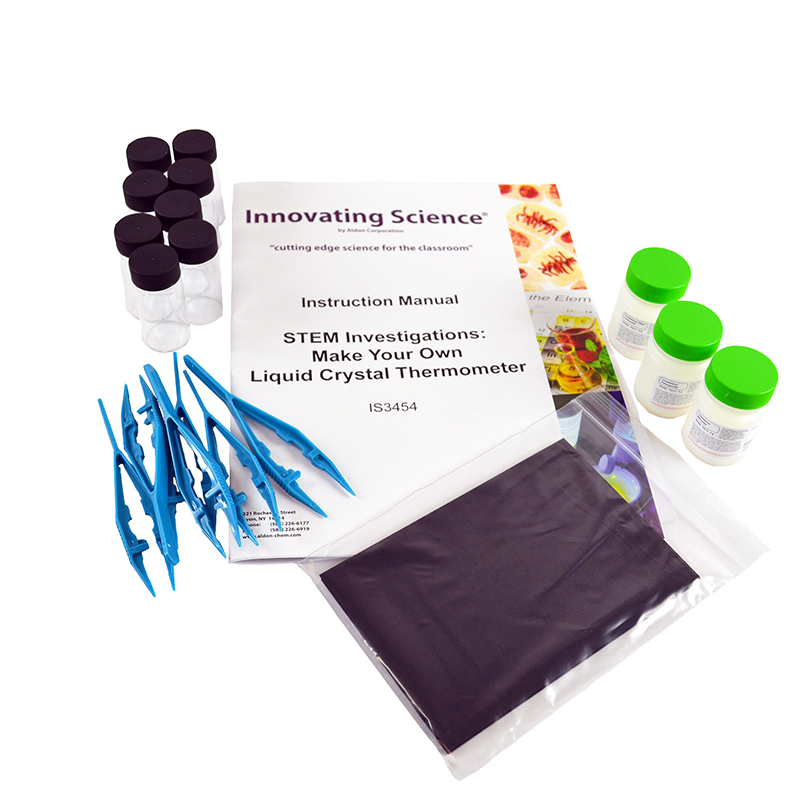


Students explore materials science and engineering while learning about an interesting state of matter: liquid crystals. Liquid crystals have an ordered structure like a solid, but are also fluid like a liquid. The molecular-level structure of a liquid crystal can be affected by changes in its environment, such as electric field or temperature, which can lead to changes in its macroscopic properties, such as color. In this experiment, students mix three chemicals in different ratios to form four different liquid crystal mixtures that are sensitive to temperature. Working in groups, students will determine the working temperature range for each of the four liquid crystal mixtures. As an engineering challenge, the students will then use the information they have gathered to design and construct a thermometer using their liquid crystals. Through this kit, students will gain an understanding of liquid crystals and how they can be used in a variety of everyday technologies.
Resources

